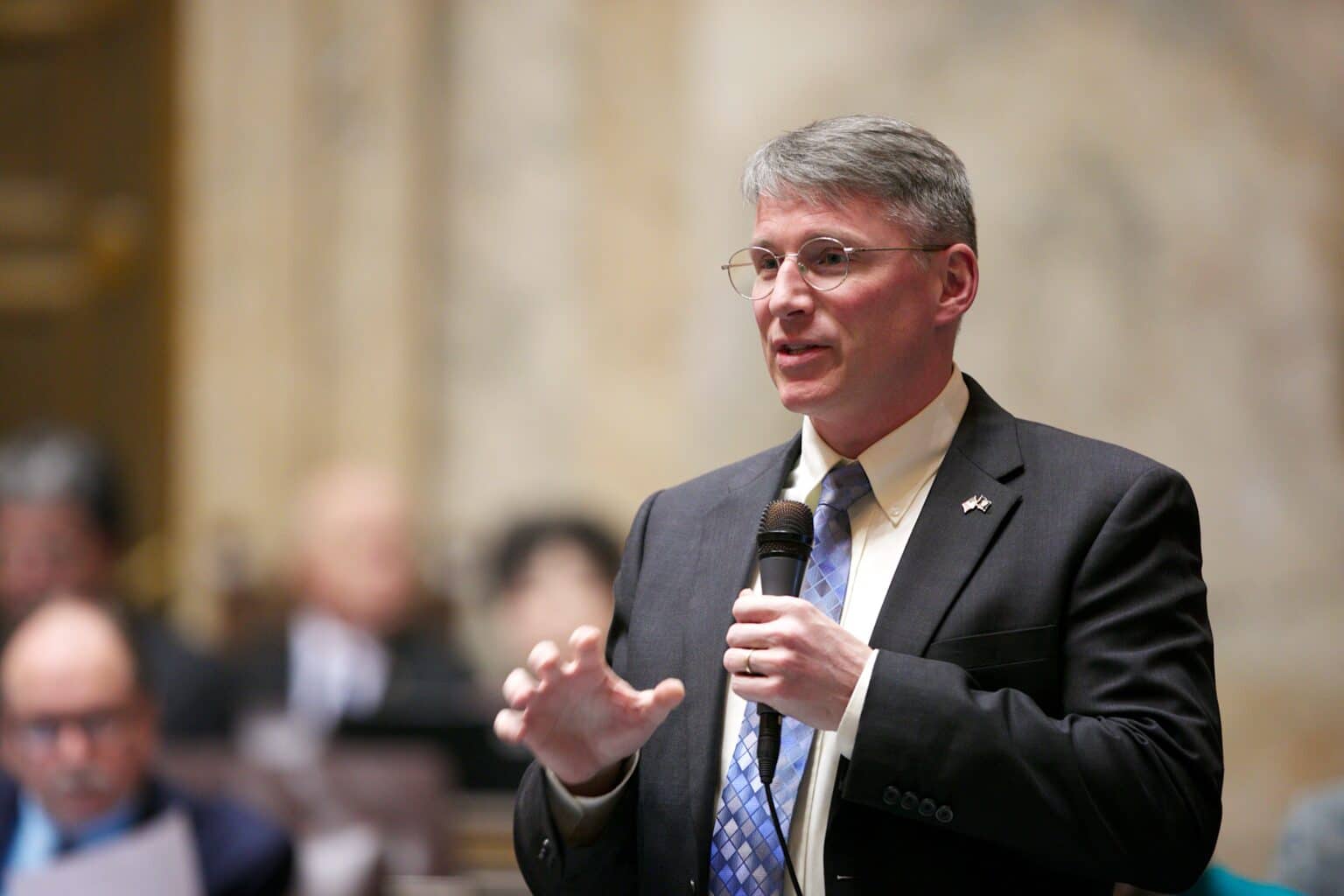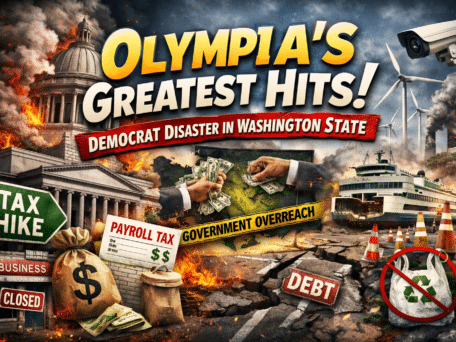Your background combines military service, tech industry experience, and classroom teaching. How do these three perspectives influence your approach to public policy, especially in education and economic development?
Each of these roles taught me the value of discipline, innovation, and service. The military instilled leadership and accountability. The tech sector showed me how systems can be optimized to solve complex problems. And teaching reminded me that the future depends on how well we equip the next generation. These perspectives drive my focus on practical, forward-looking policies. Especially when it comes to education reform and creating a business environment that supports innovation, competition, and family-wage jobs.
During your two terms in the state House, you were a lead negotiator on the McCleary fix that dramatically increased K-12 funding. Now, looking back as a candidate for state Senate, what did the Legislature get right—and what still needs fixing when it comes to our public schools?
The Legislature got the funding part right. We doubled K-12 spending, made the system fairer, and relieved pressure on local levies. But what’s still missing is accountability. We didn’t tie that investment to student outcomes, and now we’re seeing declining test scores, widening achievement gaps, and students unprepared for life after graduation. Money alone doesn’t fix a broken system. We need to empower parents, expand career and tech education, and get politics out of the classroom so teachers can focus on teaching and kids can focus on learning.
You’ve opposed income, capital gains, payroll, and carbon taxes. With Olympia consistently pushing new tax schemes, what’s your plan to rein in what many see as unsustainable government spending?
Olympia doesn’t have a revenue problem. It has a spending problem. Year after year, we see record tax collections followed by even bigger budgets and new taxes layered on top. I oppose these tax schemes because they punish work, investment, and the middle class. My plan is simple: stop the growth of government, audit state programs for waste, and modernize systems to make them more efficient. We need to get back to budgeting based on real priorities, not political wish lists.
Washington is facing a growing shortage of skilled tech workers. How would you expand access to computer science and STEM education without leaving rural or lower-income students behind?
This is personal for me. As a computer science teacher and former Microsoft developer, I know how critical it is to get students into STEM early. I helped pass legislation expanding computer science access statewide, but we still have gaps. We need to invest in training more qualified teachers, bring industry professionals into classrooms through programs like TEALS, and ensure every student, regardless of zip code, has access to high-quality STEM courses. That includes rural schools, where remote learning tools and partnerships can close the gap.
You’ve earned endorsements from both Republicans and some Democrats—what does bipartisan leadership look like in today’s polarized political climate, and how do you plan to build consensus in the Senate?
Bipartisan leadership starts with listening and putting people before party. During my time in the House, I passed major legislation with support from both sides because I focused on solving problems, not scoring points. I’m not interested in political theater. I care about results. In the Senate, I’ll work with anyone who’s serious about fixing what’s broken, whether that’s in education, public safety, or the budget. Voters are tired of extremes. They want leaders who can find common ground and get things done.
You’ve watched public safety debates shift dramatically in the Legislature. What lessons did you take from your time in office, and what specific policies would you push for to address crime today?
One of the biggest lessons I learned is that public safety should never be politicized. When we tie the hands of law enforcement or pass policies that make it harder to hold criminals accountable, communities suffer. I support increasing support for officer recruitment and retention, and expanding mental health co-response teams. We also need to stop sending mixed messages to criminals. Accountability and prevention must go hand in hand if we want to make our streets safer.
As someone who’s served on a nuclear sub, taught high school computer science, and coded at Microsoft, what’s the more stressful environment: a classroom full of teenagers, a deadline at Redmond, or 400 feet below the ocean?
Each one brings its own kind of pressure. On a submarine, you operate with zero room for error. At Microsoft, mistakes can end up costing millions. But in a classroom, you’re shaping futures, and that’s a different kind of responsibility. Honestly, managing a room full of teenagers every day might be the toughest of the three. It’s also the most rewarding. That’s why I replaced the boardroom with a classroom, and don’t plan on shifting back.




